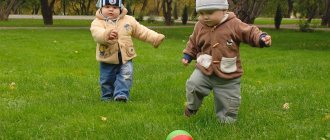Socialization of an individual is a person’s mastery of basic social norms, values, culture, standards of relationship models in the society to which the individual belongs. It consists of accepting and mastering the values, morals, norms of behavior, and knowledge prevailing in society. Socialization contains agents and institutions that specialize in the processes of introducing an individual to society.
Socialization is divided
:
- Primary – mastery of a basic set of values and behavior patterns in society by a child;
- Secondary – mastery of a new value-normative basis by an adult individual.
Macrofactors of socialization
Macro factors of socialization influence the socialization of all humanity or very large groups of people living in certain countries.
Macro factors include:
- Universe, or Space.
- Planet Earth.
- The entire human community.
- A country is a territory that has borders, distinguished from other territories by natural conditions and geographical location.
- Society is a set of social relations that have developed between people in a country, including in its structure the family, the state, age, social, professional and other groups.
- The state is a part of the political system of society that has power functions.
- Natural environment or geographical factor.
Are you an expert in this subject area? We invite you to become the author of the Directory Working Conditions
In the modern world, there are many problems that affect the living conditions of the individual and have an indirect or direct impact on the socialization of the individual:
- Environmental problems – environmental pollution.
- Demographic problems - growth or decline in the population of individual countries.
- Economic problems - economic crises, increasing gaps in the level of economic development of individual countries and continents.
- Military-political problems - the proliferation of nuclear weapons, the increase in the number of regional conflicts, political instability.
The socialization of an individual is influenced by the characteristics of the sex-role structure of society, predetermining ideas about the status of gender, sex-role expectations, and self-determination.
The state acts as:
- factor of socially controlled socialization: participation in the creation of educational and educational institutions (kindergartens, schools, colleges, institutes, institutions for children with poor health, etc.);
- factor regarding directed socialization: determination of the mandatory minimum education, length of service in the army, age of marriage, etc.);
- factor of spontaneous socialization: ideology, politics, social and economic practices characteristic of a given state form certain conditions for the life of its citizens.
Finished works on a similar topic
Course work Factors of personality socialization 410 ₽ Abstract Factors of personality socialization 280 ₽ Test work Factors of personality socialization 190 ₽
Receive completed work or specialist advice on your educational project Find out the cost
Article:
Child development is not only a complex, but also a contradictory process, which means the transformation of a child as a biological individual into a social being, i.e. personality.
The influence of society on the development of a child’s personality
Society plays an important role in the development of the personality of each person, since it is by living among society that we also become people, accept or reject norms, rules, agree with other people’s opinions or impose our own.
A person without society grows up in the likeness of an animal, and science has seen confirmation of this fact more than once: children raised by a pack of monkeys, wolves or dogs were rather behaviorally “more animal than human” - they were absolutely not adapted for life in society. It is society that makes a person an individual capable of living with his own kind and getting along in this world among people.
What is socialization?
A person by nature needs recognition and approval from the people around him, be it parents or friends. When a baby has just begun to get acquainted with this world, in addition to his physical needs, the praise of family and friends and a high appreciation of his merits are extremely important to him. As the child grows up, such an assessment provides him with confidence in himself, in his strength and in his uniqueness. Expanding the boundaries of his knowledge in society, the child is “cut down” by his further environment - his friends do not admire his talents as much as his parents; educators and teachers are completely torn between 20–30 children, often not devoting more than 10 minutes individually to each child. This is socialization, the child’s adaptation to the society around him.
Society is a community of cultures, living conditions, traditions, rules and norms of life; it is important not only how the child understands society, but also how positively society will accept the child. There are often cases when an absolutely normal child, without any mental disabilities, simply with his own artistic or dreamy view of this world, getting into society, did not feel comfortable there. People do not like very different individuals, especially if it is impossible to break them and impose their point of view. However, a child must learn to live in society, to coexist with other opinions, other people’s actions, because each of us depends on the other, and by rejecting the norms and rules of society, a person will feel unclaimed and unnecessary, and this will negatively affect his psycho-emotional state.
A child is already born with a certain status in society, for example, based on the country and family in which the child was born, we can safely say that he is, for example, a son, a German, an aristocrat - this is already an innate status that a little person will not change. But as he grows up, he can acquire other statuses with the help of certain social groups, for example, schoolboy, student, spouse, deputy, officer, etc. Depending on the status of his parents, the child will strive to obtain one or another position, achieve certain goals - and this is one of the merits of society, because the desire to obtain a certain status directly depends on position and approval in society.
And if a child gradually grows into a human being in society, then in most cases his uniqueness will be lost. Kids, who do not yet know about social norms and rules, always tell the truth, do not be hypocrites, talk about their every feeling and sensation - they are free in their “confession”, and that’s why they are so happy. Both at home and outside, the child begins to be put into frames - “this is not possible,” “this is wrong,” “this is uncivilized,” “you are doing badly,” “they don’t do that,” and everything in the same spirit. As a result, the free bird that just recently fluttered in the child’s soul gradually understands that in order to live in society, you need to obey the rules, you need to overpower yourself, in most cases, accept other people’s opinions, even if you think completely differently. And if someone shows too much of their “I” to everyone, they may not understand him, which is why many children, distinguished by their individuality and rebellious opinions, are often outcasts among their peers and society as a whole.
Factors influencing socialization
The socialization of a child is influenced by many factors, and first of all they depend on the environment surrounding the baby.
Microfactors
From birth, a child is in a microsociety, and it is this microsociety that has the greatest influence on his development. Microfactors that influence the socialization of a little person are family, kindergarten, school, peers, friends and classmates, that is, those groups that are in undeniable proximity to the child, with whom he encounters every day.
As a child grows, more and more people come into his life. These are relatives - mother, father, grandmothers, grandfathers, uncles, aunts, sisters and brothers. Then the circle of communication is supplemented by educators, peers, teachers, classmates, and friends. The older the baby, the more microfactors influence him.
Mesofactors
This is a more generalized influence on the child, which forms his broad horizons and understanding of what is happening. Mesofactors include regional living conditions, type of settlement (metropolis, small town, town, village), ethnic attitudes, which in the same country, but in different parts of it can be completely opposite, as well as mass media (TV, Internet , newspapers, news).
Macro factors
If we consider the country as one of the factors influencing the child, then it will be a macro factor, since it is more global. Planetary, global, economic, environmental, demographic processes - these are the significant and undeniably important macrofactors influencing human socialization. People of the north are very different from the south, just as people in the east have completely different foundations than the “advanced” west. Therefore, in each country, class, and climate zone, socialization occurs differently. And this largely depends on the culture in which the child grows up, since it is this culture that determines the social norms and values for a given class. The child must understand that there are people with a different culture, with different life values, with a different way of thinking - and this difference must be accepted, not condemned or fought with it, but simply get to know other peoples and get to know the world.
The influence of society at different age periods
As a child grows up, the number of social institutions that influence the development of his personality increases significantly, some fade into the background, others gain primacy. But each institution has its own educational significance, so ignoring at least one of them will lead to an unacceptable omission in the development of the child’s personality.
The influence of society on a child under 3 years of age
While the baby is still very small, he is influenced exclusively by microfactors, that is, family and immediate environment. The family is the most positive and loving social institution that raises a child in “greenhouse” conditions. These are those golden years when family and friends have an undeniable influence on the development of the child’s personality, and parents need to try to instill in their child all the best qualities that in the future will help him take a worthy place in society. The main task of parents is to form a positive emotional sphere for the little man and influence his external behavior, that is, from the first years of life, the baby must know and obey the basic rules of discipline and hygiene.
The influence of society on a child in preschool age
During this period of life, the influence of society on the child’s development becomes more diverse, as the child becomes familiar with the rules and guidelines of society. A child’s communication with peers in kindergarten is of enormous importance in the further formation of the child’s personality, because it is among them that the child learns to achieve his goal, understands how and with what he can receive praise not only from mom and dad, but also from other adults, that is educators. In a playful way, the child learns to interact with other children, and certain moral standards are established. Those who spent the entire 6 years at home instead of kindergarten before school do not have such a rich experience of communicating in society that they cannot positively influence the character and personality of the child.
An undeniable contribution to the socialization of the child is made by role-playing games, which prevail in groups in kindergarten. Seeing the style of behavior in his family, the child tries to impose it on others in the game, but is faced with the fact that peers may have their own opinions and their own rules. This way the child learns that not everyone’s family and communication rules are the same, and in older preschool age children learn cooperation at a basic level.
Another question is, which kindergarten should you send your child to? Today we are hearing more and more about such a concept as a kindergarten “at home”, where there are only 5–10 children in a group, and not 20, as in a regular preschool institution. The fewer children in the group, the more attention the teacher can pay to each of them, and this is extremely important in the development of thinking, the development of kindness and responsiveness in the child’s heart.
The influence of society at primary school age
The upbringing and influence of the family at the moment when the child goes to school weakens by at least half, since now for the child the school is the main educational institution. Here, the child in real time gets the first idea of real society, about discipline, order, respect for other people’s opinions, about learning in general, about the norms and rules of communication, about the difference between communication with peers and with older people in status, then eat with teachers.
At this age, the authority for children is undoubtedly adults - parents and teachers, and this is probably the last step when adults can still instill in a child the right thoughts and actions. The school should be the main educator of the child’s personality, even though it is aimed at teaching, not education.
The influence of society on a child during adolescence
Remember yourself as a teenager - the influence of the family is negligible, we absolutely do not listen to our parents, but now socialization outside the home becomes our main task.
Authority among peers, the turning point from a dependent child to independence - this is one of the most important and difficult periods in a person’s life. The child spends most of his time among his peers, and after school he does not go home, but goes for a walk outside, and so on every day. Now the influence of society on the development of a child is enormous - his company, the people around him whom he has chosen as friends, their attitude towards him, authority or persecution. A person becomes independent, he improves himself so that his point of view is listened to, so that he is part of society, so that he is not expelled from society, because now all life is continuous communication, and without norms and rules it is practically possible to survive among one’s own kind impossible.
The influence of society on a child in adolescence
When a teenager enters adolescence, the family is no longer an educational institution for the vast majority of people. Now the formation of personality is influenced by the environment in which he is located - company and friends. Those personality traits that have developed in the child up to this point undergo some changes or are further strengthened depending on the social circle in which the child finds himself, depending on situations, on the ability to cope with them, depending on the character and type of temperament of the young person .
And if previously a child lived in society, relying on his parents, knowing that they would always help, advise, and come to the rescue, then at the age of 16–17 years people themselves solve their problems to the best of their ability, without involving adults in this. However, the development of personality in adolescence depends not so much on the influence of society, but on the activity and desire of the child to live in it. A person himself makes a decision - to obey certain norms and rules, or to protest against them.
Mesofactors of socialization
Mesofactors of socialization are certain conditions for the socialization of groups of people united:
- national sign;
- type and location of settlement (town, village, city, region);
- belonging to the audience of one or another mass communication medium (computers, television, radio, cinema, etc.).
Ethnic characteristics that influence the method of socialization are divided into:
- vital, or vital (health, nutrition, methods of physical development);
- mental or spiritual.
Features of socialization, determined by the type and place of socialization:
- Significant social control over individual behavior, openness in communication in towns and villages.
- A wide choice of value systems, communication groups, lifestyle, significant opportunities for self-realization in the city.
- Main functions of mass media:
- Socio-psychological function: the need for connections with other people, satisfaction in receiving information that supports his ideas, values, views.
- Dissemination of knowledge in the field of science and culture.
- Social management and regulation, maintaining public relations.
What is human socialization: concept
Socialization
Socialization of a person is the process of obtaining a set of character qualities, without which a full existence in society is impossible. It occurs through human interaction with the external environment, as well as other members of society.
The result of the process is the transformation of a person into a full-fledged personality. Thus, throughout life, a person accumulates experience and knowledge that force him to change and develop his own traits and manners of behavior and communication. At the same time, it cannot be said that socialization is a process that has some kind of completion. The fact is that it passes throughout life. Moreover, regardless of age, people tend to overestimate their views.
It is also necessary to take into account that socialization is two-way. That is, a person not only accumulates certain knowledge and experience, but also ensures the formation of relationships between people. In the process of communication, people begin to form personal preferences and preferences. At the same time, the individual always takes on the functions characteristic of society.
Since people very rarely find themselves alone and live in a group life, the question of a person’s entry into society never loses its relevance. And it is socialization that is the process that allows you to join existing social groups.
Types of socialization
There are two types of socialization of individuals – primary and secondary. Primary begins from the moment a person is born until the moment he becomes fully mature. Secondary or resocialization lasts throughout life.
Primary socialization of an individual - childhood, school years
During childhood, a child's socialization occurs unconsciously. Initially, he looks at his loved ones and adopts their behavioral characteristics. Gradually begins to compare his actions with the norms accepted in society, a certain group. To do this, he monitors the reactions of others. If he receives approval constantly, the chosen norm will be fixed.
Social agents in childhood and school age:
- mother father;
- sisters, brothers;
- grandmothers, grandfathers;
- kindergarten teachers;
- nannies;
- Friends;
- officials;
- teachers;
- public figures (aka idols);
- MASS MEDIA;
- Internet.
Before reaching adulthood, an individual’s personality is almost 70% formed.
Resocialization
This is the second stage of socialization (secondary). Established models during this period can change and transform based on the influence of life circumstances and new agents.
Social agents influencing resocialization:
- the team in the organization where the person works;
- management, high-ranking officials of the company;
- political parties, individual politicians;
- state.
At the same time, a person is assigned a certain social status depending on his place in society. This is influenced by profession, education, income, marital status.
The socialization of an individual in an organization is based on his communication with colleagues and superiors. These people can significantly influence his behavior, since he is in contact with them most of the time.
How does human socialization proceed: stages
Stages of socialization
Socialization of a person does not happen immediately. This is a rather complex process that takes place in several stages. First, social adaptation must take place. In other words, a person still needs to adapt to the conditions of the social environment in which he finds himself. In general, it is believed that adaptation occurs at three levels - physiological, psychological and directly social.
- Physiological . At this stage, a person takes a closer look at the new environment, begins to make some connections and evaluate his own capabilities. All this will help him to realize himself in the future. At this time, a person actively communicates and gets used to new rules for himself, and then begins to make some efforts that are taken in this team.
- Personalization . At this stage, a person already accepts himself as part of society. Actually, at this time the personality is already being formed. A person develops his own beliefs and skills, and begins to evaluate what is happening in his own way. If at the first stage a person learns to be like others, then at the second he already learns to be different. Although, this process is considered subjective. The fact is that everyone learns general rules and experience in their own way. Some people observe them strictly, while others do the opposite. Some try to overcome stereotypes, and some even try to destroy the foundations of the group, as a result of which a person either finds himself outside of it or destroys it.
- Integration _ This term means that a person is accepted by other members of society, that is, he becomes a full part of it. Society seems to accept a person and tries to accept him as he is, if he at least lives according to general rules. The process is more successful if the person turns out to be useful to society. Then even his shortcomings will be forgiven.
It is important to note that the complete absence of inconsistencies is highly undesirable, at least in developed societies. The fact is that conformism is one of the forms of deviant behavior, because there is no benefit from a person for society. Every society has a certain degree of freedom, but only within the framework of the group. However, in undeveloped societies such behavior is only encouraged, and attempts to behave differently are suppressed.
Classification of agents of socialization by age
At different stages of socialization, the influence of certain agents on a person is noticeably different. Here are some examples:
- The main agents of socialization for a child 1-3 years old are his relatives, in particular his closest relatives, which include parents, grandparents, sisters and brothers. The feeling of attachment to people and the desire to trust them is formed in children precisely during this period of life;
- At the age of 3-8 years, the child has additional agents of socialization, for example, educators and teachers. At this stage, the process of mastering the individual with a list of very important cognitive and thinking skills occurs;
- At the age of 8-15 years , socialization is provided mainly by small social groups of peers, which children and adolescents join. The main task of these groups is to facilitate the process of a person’s transition to adulthood.
Microfactors of socialization
These are groups that have a direct impact on specific people: family, peer groups, organizations in which education is carried out (educational, professional, social, etc.).
Society is always concerned that the pace of socialization of the younger generation does not lag behind the pace and level of development of society itself, and carries out this process through institutions and agents of socialization (generally accepted norms, the family, as well as state and public institutions and organizations).
The leading role in the process, along with the family, belongs to educational institutions - kindergartens, schools, secondary and higher educational institutions. An indispensable condition is also his communication with peers, which develops in kindergarten groups, school classes, and various children's and adolescent associations. Teachers are agents of socialization, responsible for teaching cultural norms and internalizing roles.









